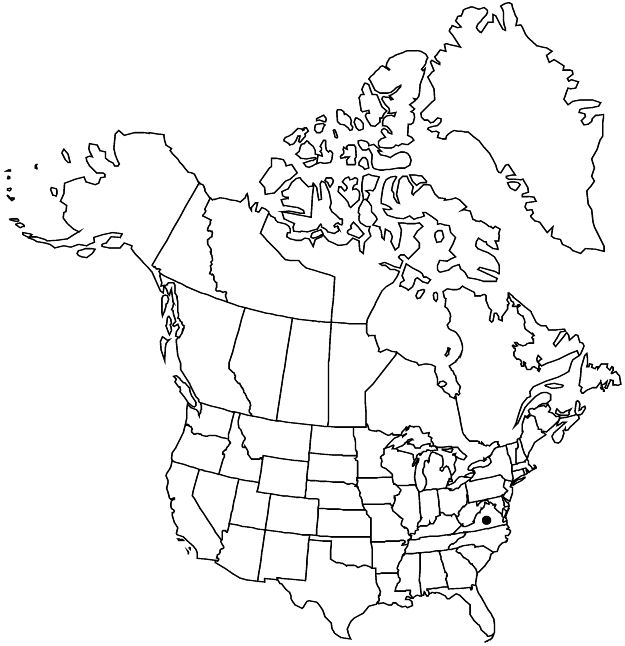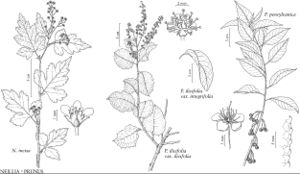Neillia incisa
Novon 16: 92. 2006.
Leaves: stipules prominent. Inflorescences: peduncles glabrous to densely pubescent. Pedicels 5–8 mm, pubescent. Flowers: sepals distinct or basally connate. Follicles pilose. Seeds ovoid, shiny. 2n = 18 (Asia).
Phenology: Flowering May; fruiting Jul–Sep.
Habitat: Moist forests, forest edges
Elevation: 100–200 m
Distribution

Introduced; Va., Asia (Japan, Korea, Taiwan).
Discussion
Neillia incisa is commonly cultivated and is promoted in the nursery trade as an attractive, deer-resistant, and easy-to-grow ornamental shrub. The establishment and spread of N. incisa in Richmond, Virginia, shows its ability to naturalize and occupy shaded sites in moist temperate forests of eastern North America. Field observations indicate local spread by proliferous tip sprouting. Despite the paucity of documented occurrences of its naturalization, it can be expected to naturalize more broadly in eastern North America and may prove to be locally invasive. 'Crispa' is one of the more popular cultivars and is shorter in stature (less than 1 m) than the rest of the species.
Selected References
None.
